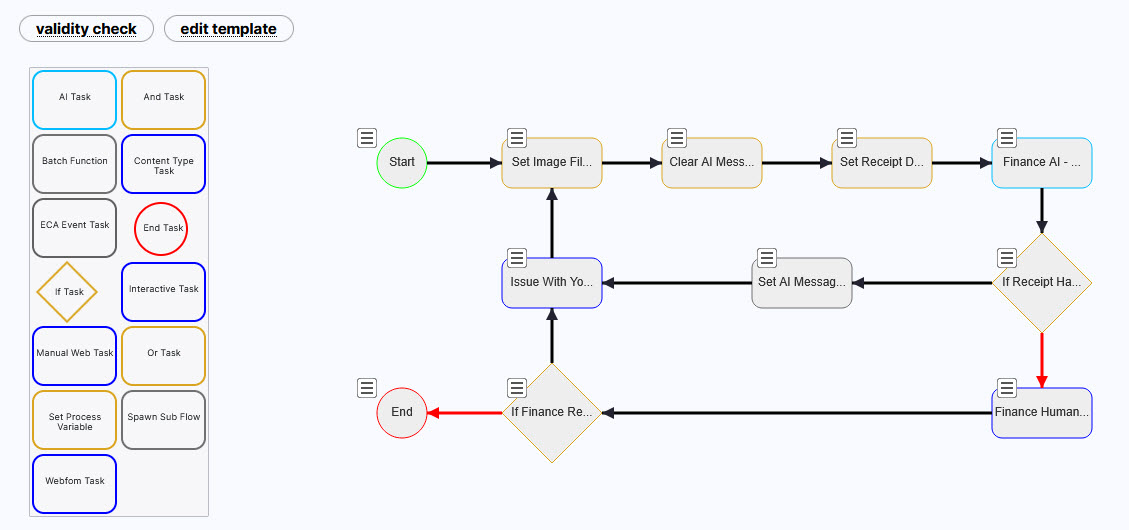We've updated our Maestro Template Builder in our Maestro 4.2 release!

Our new Template Builder is now based on diagram-js, the same Javascript library that powers BPMN.iO. With this update Template Builder now supports:
We've updated our Maestro Template Builder in our Maestro 4.2 release!

Our new Template Builder is now based on diagram-js, the same Javascript library that powers BPMN.iO. With this update Template Builder now supports:
When Maestro first hit the Drupal scene, it was 2011, Drupal 7 was the main release and the Rules module was the primary mechanism you'd use to react to events happening in your Drupal system. Maestro integrated easily with Rules to allow site builders to fire off Maestro workflows when events happened in Drupal. Fast forward to 2025, and the ECA module is rapidly gaining traction.
In the dynamic world of academia, managing academic visitor applications efficiently is crucial. The University of Oxford Mathematical Institute has embraced the power of Drupal and the Maestro module to streamline and enhance their academic visitor application process. Let's delve into the seamless workflow that facilitates this crucial task.
Initiation: Academics or their assistants initiate the process by filling in a comprehensive multi-page webform tailored to their needs.
We are pleased to announce the latest release of our workflow engine, Maestro. In this release, we have not only addressed a few minor bugs but also introduced several significant enhancements. These enhancements empower you to automate complex business processes that extend beyond your Drupal environment, opening up a world of possibilities.
In our blog post about Innovating Healthcare with Drupal, we talked about using Drupal to deliver an application that improves the healthcare experience for palliative care patients. Our application was a resounding success. The global COVID-19 pandemic hits and th
Innovation within Canadian healthcare continues to provide better care experiences for those using the system. As the population ages and strains our facilities to care for those nearing their end-of-life, hospitals are looking at technological solutions to ease the burden on emergency rooms and give people access to accurate and timely healthcare. Nextide partnered with a Toronto-based e-health company, to create an innovative health and wellness application to monitor the condition of palliative care patients for a major Canadian hospital.
As Drupal module maintainers, we at Nextide need to be constantly updating our modules to add new features or patch issues. Whether your module is available for download or is a custom module for a client site, you can't expect users to uninstall and reinstall it to pick up new features. If you have data or configuration changes, update hooks are mandatory to learn. This post will show how we created a new content entity in a Drupal update hook.
The Maestro module and it's use-case can be challenging to understand and we recognized there was a need to provide a better explanation and examples.
It's fair to say that every company and organization from small to large has business processes involving the movement of forms and or documents with varying degrees of complexity and number of participating internal and external users. Maestro was developed to help automate these processes with it's workflow editor and workflow engine.
This is part 4 of the Maestro for Drupal 8 blog series, defining and documenting the various aspects of the Maestro workflow engine. Please see Part 1 for information on Maestro's Templates and Tasks, Part 2 for the Maestro's workflow engine internals and Part 3 for information on how Maestro handles logical loopback scenarios.
This is part 3 of our series on developing a Decoupled Drupal Client Application with Ember. If you haven't yet read the previous articles, it would be best to review Part1 first. In this article, we are going to clean up the code to remove the hard coded URL for the host, move the login form to a separate page and add a basic header and styling.